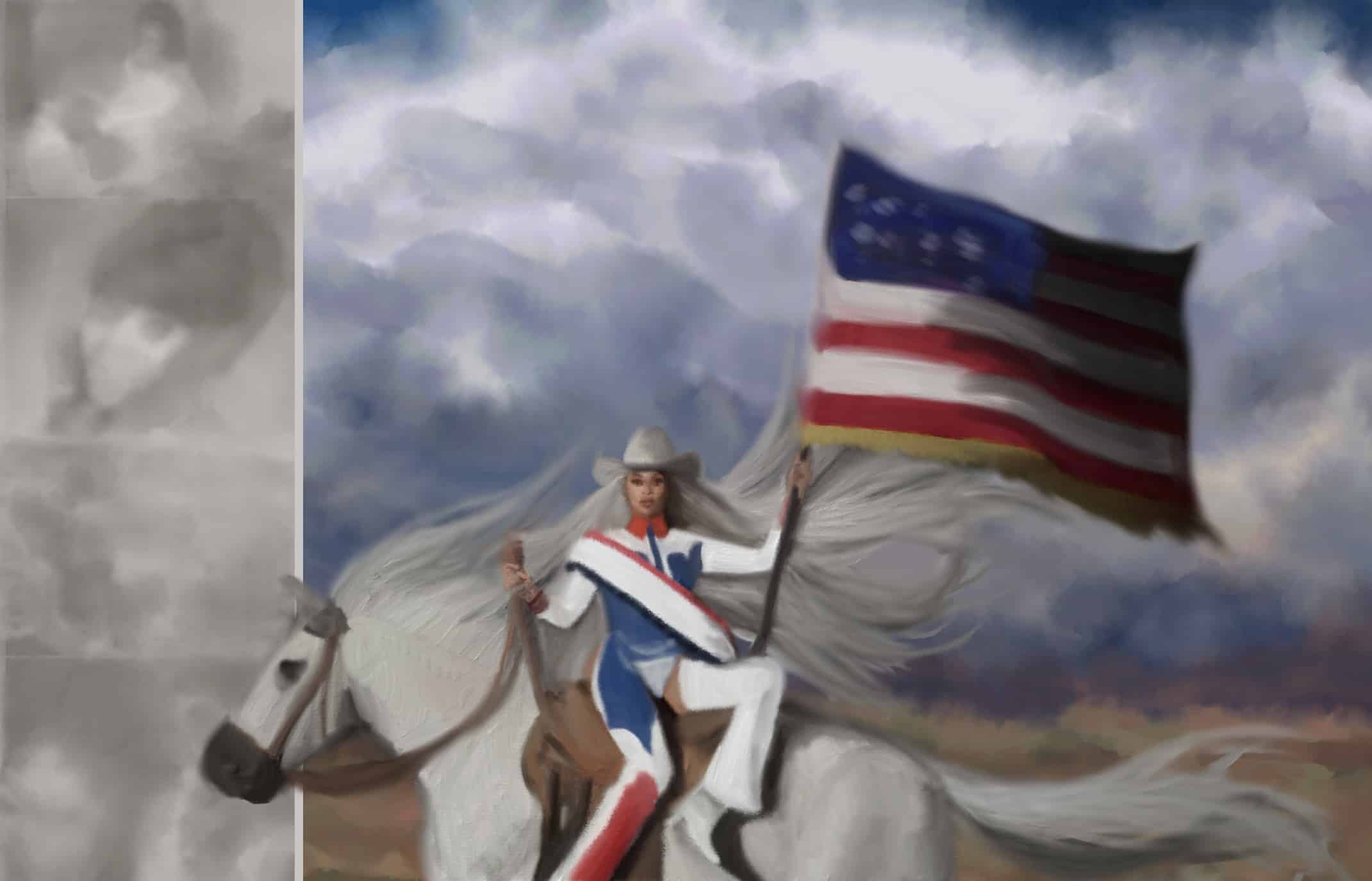Beyonce’s Cowboy Carter and the history of country music
A closer look at Beyonce’s country album and the historical and cultural significance of a Black woman working in the country genre.
In March 2024, Beyonce released Cowboy Carter. Many praised her exploration of American culture, particularly for its recognition of Black people’s contributions to country music and America more broadly. Some, however, critiqued her switch to country music, claiming that it is not truly country. Much of these claims come from assumptions about the country genre being a “white” genre—similar to Lil Nas X with his song “Old Town Road.” Despite country music’s association with white hillbilly culture, the genre has roots among Black American communities.
Early country music originated from spiritual songs sung by Black people in the South. The banjo, a distinct feature of the genre, originates from West African lutes that were brought to America by enslaved Black people. It was later appropriated by minstrel Blackface shows, going on to become popular among white artists, and was then abandoned by Black musicians. Despite its origins among Black people, the appropriation of the banjo changed historical understandings of the instrument and country music.
Beyonce is well aware of this and crafted her album with it in mind. The title, Cowboy Carter, refers to The Carter Family, a famous white country music group that was heavily influenced by Black musician Lesley Riddle. The album cover features many symbols of American culture—a culture that so often ignores contributions made by Black people. Beyonce dressed as a cowboy, sitting on a white horse, and carrying an American flag is reminiscent of colonial America. Positioning Beyonce, a Black woman from Texas, in this role instead of the white founding fathers is a reclamation of stolen history.
The album’s songs continue these themes of empowerment and reclamation of culture. Among the many features on the album, a significant one is Linda Martell, who was the first Black woman to achieve commercial success in the country music genre, as well as the first Black woman to play the Grand Ole Opry, a live country radio station from Nashville, Tennessee.
Another significant inclusion is Beyonce’s cover of The Beatles’, “Blackbird.” While not country, the song was written by Paul McCartney about the Little Rock Nine to give Black girls (“blackbirds”) hope during the Civil Rights Movement. The song, now sung by Beyonce and other Black female country singers, takes on new meaning from the perspective of Black women who, instead of “waiting for this moment to arrive,” are actively working to make it happen and continuing to make hope available to others.
Beyonce has been very successful in navigating different styles over the years and Cowboy Carter is just one more example. It has now earned 11 Grammy nominations, making Beyonce the most nominated artist ever—though she has never won Album of the Year. Will Cowboy Carter change that? Only time will tell; but, regardless of awards, Beyonce’s album is a significant success for her and Black musicians everywhere.


This is really cool to know. I knew that country music only came to be because of the blues, but I had no idea to what extent. It’s a horrible realization when you follow the thread of white American (and Canadian) appropriation of various cultures. The stunning lack of credit given. I feel like there is so much of North American history that has been fogged and made unclear.
Thank you for making it a bit clearer.